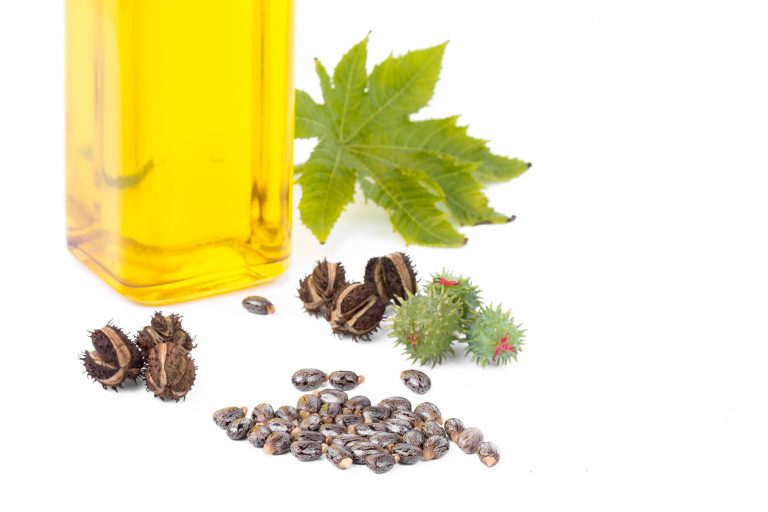
Page Contents
You have more than likely heard about castor oil and how great it is for your hair. However, you may not be aware of Jamaican black castor oil.
Though there are some similarities between these two types of castor oil, there are just as many differences.
Both of these castor oils can be used for your hair, and both have their own benefits.
Depending on what you hope the oil to achieve for your hair, one might be better for reaching your goals than the other one is.
To determine if Jamaican black castor oil or regular castor or is what you personally need, you should compare them. This includes how they are made, the benefits of them, and looking at the various ways they are different.
The History Of Them
The castor plant is a vegetable plant that is originally from eastern Africa and some parts of India, where it is a native plant.
The seeds are very bean-like, and the scientific name of it is Ricinus Communis.
However, even in ancient times, the castor plant was cultivated in many different places, including Egypt, in ancient times.
An ancient papyrus this plant was mentioned every now and then. Castor oil was used primarily as a form of oil in wick lamps used for lighting. However, it was also used medicinally even in those times.
During the slave trade, the seeds were brought over to places like Jamaica. Since the castor plant needs more of a tropical climate, it was predominately grown in places like Jamaica. This is why Jamaican black castor oil has its name.
Since it already had some historical use as a medicine, castor oil was used primarily as a medicine.
You may be familiar with old films which involved taking a spoonful of castor oil to help with various sicknesses.
While castor oil does have properties that could help with a stomachache, it does not help a lot with a cold.
Eventually, taking castor oil when sick stopped being as popular, and the popularity of the oil itself faded a bit.
However, now castor oil is making a comeback thanks to its natural goodness. Today, the country that grows the largest amount of the castor plant is India. Castor oil of both types are used in hair, skin, and beauty products of all kinds.
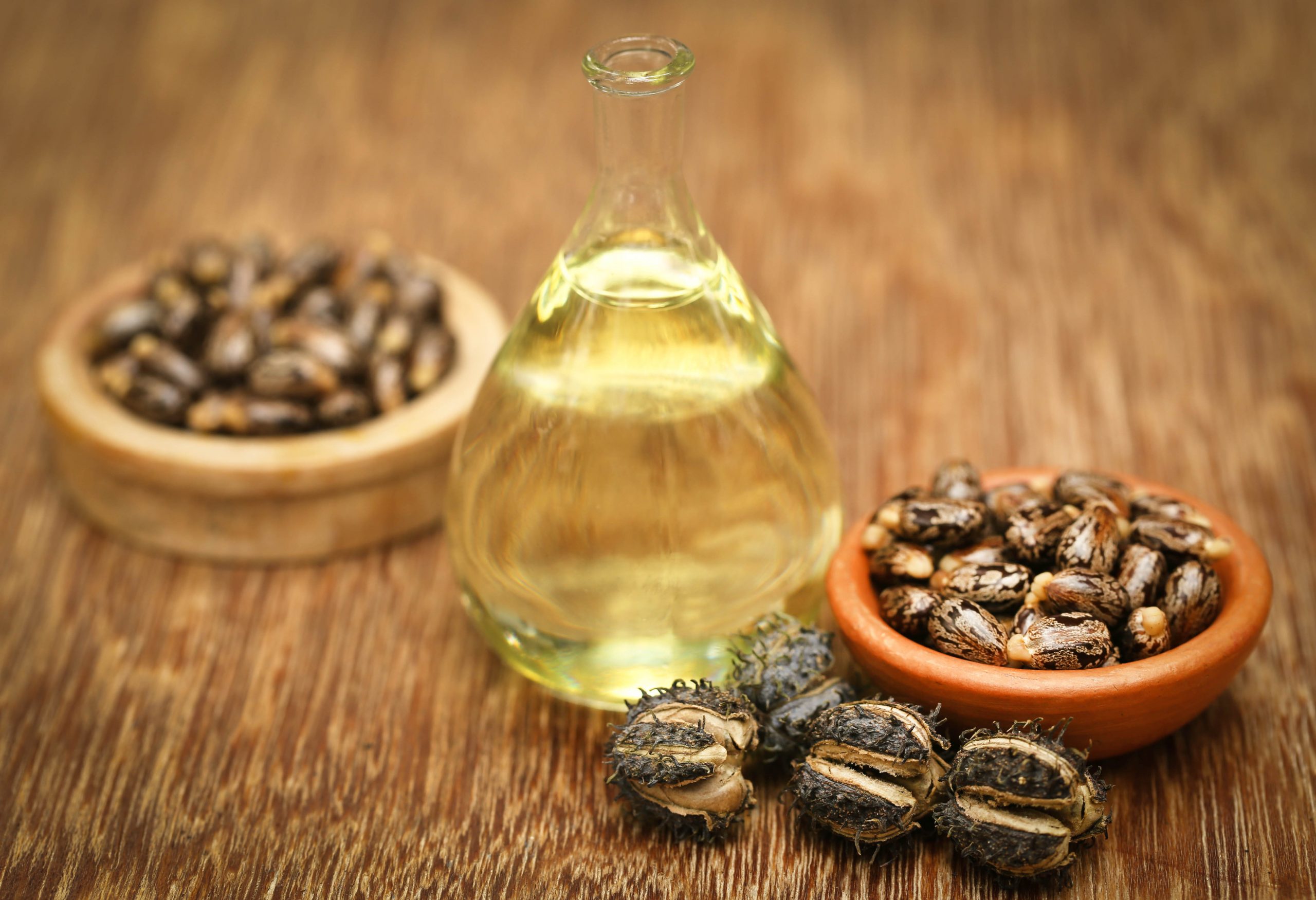
The Production Of Them
How they are made is the first difference between these two different types of castor oil.
Regular castor oil is most often found commercially as a cold-pressed oil. This is done by pressing fresh castor beans to squeeze out the oil.
Sometimes another ingredient is added to help the oil come out easier, and occasionally even chemicals are used. However, this is only done by certain manufacturers, and the main process stays the same. The result is an oil that has a yellowish color.
However, Jamaican black castor oil has a few more steps to its production process.
First, the fresh castor beans are heated up to roast them. Once they are well-browned, the beans are ground up and then boiled.
This boiling then allows the oil to separate, the Jamaican black castor oil then being collected from it. The result is an oil that is darker and sometimes thicker. These differences in the production is a large part of what gives these two castor oils different benefits.
It also gives these two oils different pH levels. The castor oil that is cold-pressed has a lower pH to it, falling on the acidic side of the scale. However, the Jamaican version has a higher pH, making it more alkaline.
Castor oil that is very clear has usually been filtered in some way. What gives castor oil its yellowish tint is some natural iodine. While perfectly clear castor oil is considered by some to simply be completely pure, it is not necessarily better.
The extra filtering and processing often requires the use of additives.
Clear castor oil also frequently has other ingredients like fragrance, parabens, and mineral oils to make the castor oil richer.
You should consider examining the label of any clear castor oils you find.
The Benefits Of Them
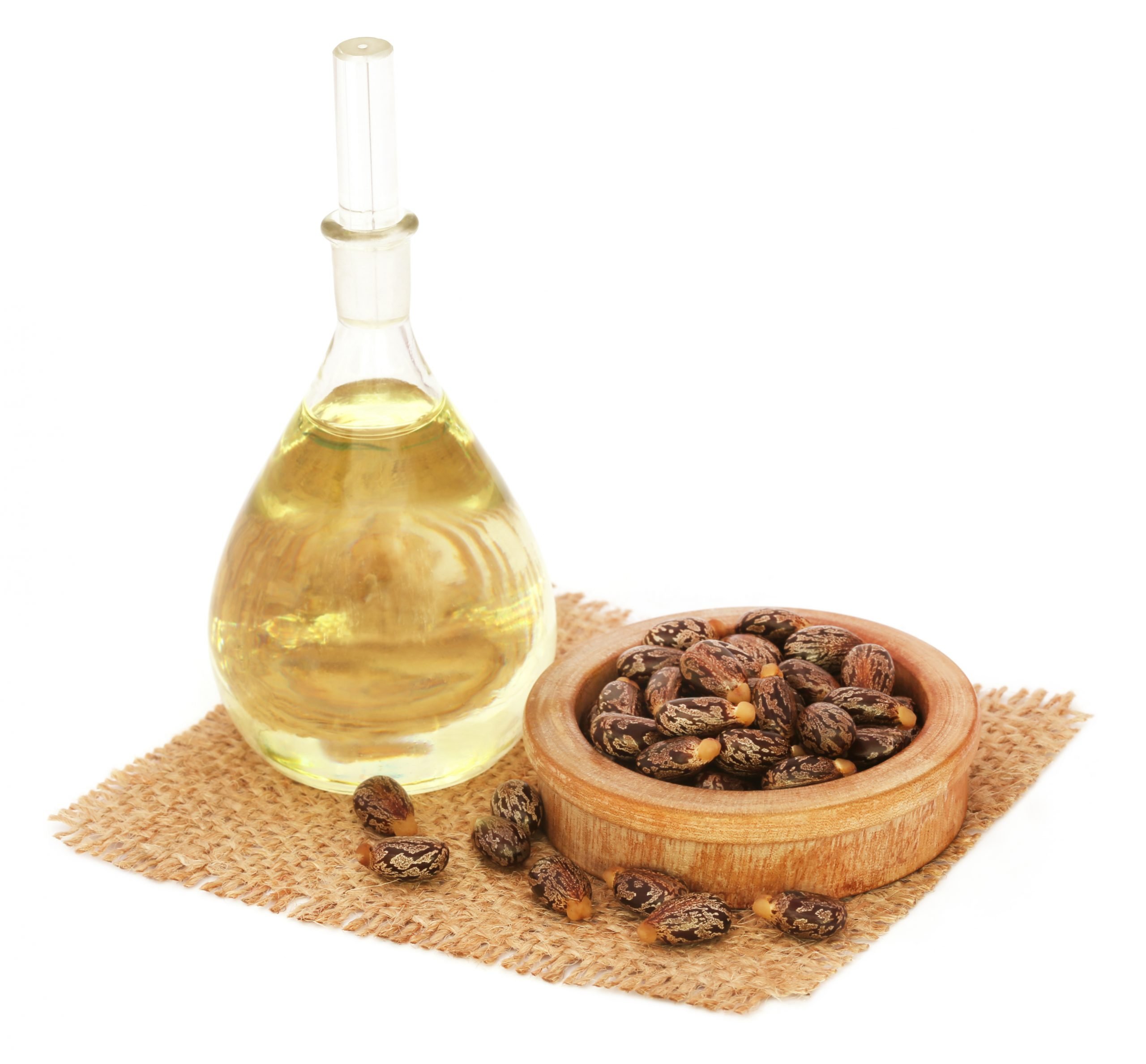
Both regular and the Jamaican version of castor oil have ricinoleic acid in them. This is an omega fatty acid that is primarily known for its anti-inflammatory properties. However, this acid can also stimulate hair regrowth, and it is moisturizing for your scalp.
Both types of castor oil promote the production of collagen on your scalp.
Collagen helps prevent dandruff and other scalp conditions that negatively affect your hair growth. These, in addition to the ricinoleic and the other fatty acids, deeply moisturize and nourish your hair.
As for the pH, a lower pH creates less static electricity. This means less frizz for your hair and slightly less breakage. However, the higher pH of the Jamaican black castor oil has its uses too.
Alkalinity is healthier for your body, assisting with the anti-inflammatory properties.
In addition, alkalinity has some health benefits all on its own, including helping with blemishes and in fighting off certain types of fungus infections.
Alkaline also helps open up some of your cells, allowing the goodness to seep into your scalp more.
Paired with other nutrition-dense ingredients, castor oil can help you get the most out of these. Therefore, on the whole, Jamaican black castor oil has more and stronger benefits out of the two.
All in all, both of these castor oils can help your scalp and hair become both healthier and stronger. This, in turn, makes your hair less frizzy, more manageable, and gives your hair shine.
All of this works on eyebrow, eyelash, and beard hair as well.
These benefits extend well beyond hair, however. The anti-inflammatory properties of these oils allow you to use it for your arthritis by rubbing it into your joints. Rubbed into your face, it can even supposedly help with acne.
Possible Concerns Of The Oils
One thing about castor oil that you should be aware of it that the plant it is made from happens to be one of the most poisonous perennial plants.
The poison found in this plant is a toxin called Ricin (glycoprotein). This toxin is not present in the finished castor oil, but you should still be careful.
If your skin is irritable, you should apply only a small amount of castor oil to see how you will react to it.
Getting too much castor oil in your system can cause a variety of symptoms. Some of these are: nausea, diarrhea, stomach pain, rashes, and dizziness.
Some medications do not pair well with castor oil either. Diuretics, antibiotics, blood thinners, heart and bone medications all should be used with caution if you are using castor oil.
Finally, kids should be especially careful not to get too much castor oil in them.
All in all, if you are afraid of reacting to castor oil, you should stick with the regular castor oil.
The Jamaican type is not as thoroughly filtered and can have small particles of the beans in it.
Using These Oils
Either type of castor oil can be used the same. However, even regular castor oil does not have the most pleasant smell.
The smell of Jamaican black castor oil is worse, having a noticeably burnt smell to it. Therefore, you will likely not want to let this latter oil sit for as long on your hair.
If the Jamaican oil sits on your hair too long, the smell can linger and be hard to get rid of. So, while you still want to let this Jamaican castor oil soak in, you should not leave it in overnight.
For both oils, you can rub about a tablespoon or two into your scalp for a handful of minutes.
The length of your hair can benefit from both castor oils, but your roots will benefit the most. You then leave the castor oil in for half an hour to overnight, depending on your schedule.
When you are done letting the castor oil soak into your hair, rinse it out with warm water. This will help you get the bulk of the oil out of your hair. Then, use your usual shampoo and conditioner, doing your final rinse at the end with cold water.
The cold water rinse will help seal the moisture from the castor oil into your hair. Try to let your hair air-dry, if possible, and avoid using heat styling products after using castor oil.
Heat can potentially bring out the smell of any castor oil that may still be in your hair.

Comparing The Two Oils
Knowing how these two castor oils are different is useful for a few different reasons. Besides helping you decide which one you want, it also can help you identify which one is which if it doesn’t specify on the label which one it is.
The Jamaican black castor oil is noticeably more expensive than regular castor oil. This is because of all of the extra steps that it requires when making it. These extra steps also make the Jamaican version much darker and give the oil a burnt smell that is not exactly pleasant.
However, as mentioned, these extra steps also make the Jamaican black castor oil more alkaline. This is a decided advantage in favor of Jamaican black castor oil.
On the other hand, the lower pH of regular castor oil is better for frizzy hair.
As far as nutrients go, there is also some debate as to whether or not the roasting kills off some of the nutrients. On the other hand, there is equally a debate about the filtering that the clear castor oil goes through and if the pressing can really get everything good out of the seeds.
In short, Jamaican black castor oil is both more expensive and potentially has more benefits for you. Most people decide that the extra expense is well worth the added benefits.
The stronger smell of the Jamaican type is also harder to handle, though, so you may prefer to go with the other.
Getting Your Castor Oil
You are most likely going to want Jamaican castor oil for your hair. This type of castor oil can be more difficult to find, though, not being available at the average supermarket.
To get Jamaican black castor oil, you may have to go to a special store or order it online. This is more trouble than regular castor oil, which can be found in most stores. Also, the ingredients on Jamaican black castor oils should also be something that you look at.
While regular castor oil may have additives to make it clear, this dark castor oil can sometimes have dye added to it to make it look darker and richer. Sometimes you can also find castor oil that has been added to mineral oil.
This can be simply called castor oil even if there is more mineral oil than there is castor oil in it. Both of these are cheats that manufacturers use to make more money.
Darker castor oil allows them to raise the price, and castor oil is more expensive to make and sell than mineral oil is.
Whichever castor oil you choose to get, make sure that it comes from an ethical supplier.
A USDA seal of approval on your bottle is also something you should look for.
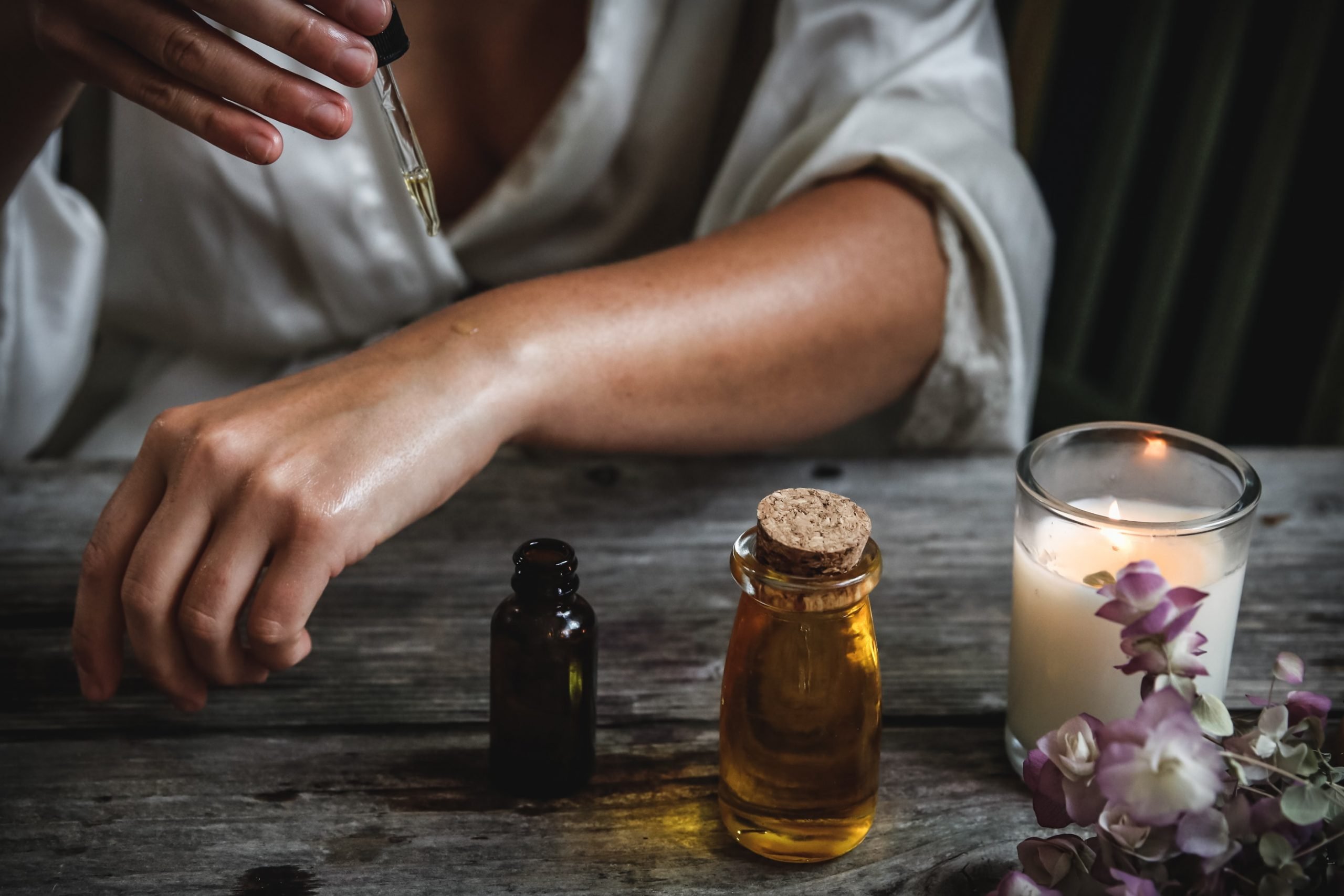
Final Notes
Castor oil is known as a ‘heavy’ oil, with Jamaican black castor oil being even more so. Both are full of fatty acids that are great for your skin. This is way better than some hair growth products that you want to avoid getting on your skin.
In fact, spreading the excess castor oil on your skin will help your skin’s elasticity. This oil can even help tighten those pores that get stretched out by your acne. Or, if you have a sunburn, castor oil has the same cooling effect as aloe vera.
Therefore, while you can get either type of castor oil for your hair, you will quite possibly end up using it for other things as well.
Once you decide to have castor oil on hand, you may want to make sure you have plenty of it.



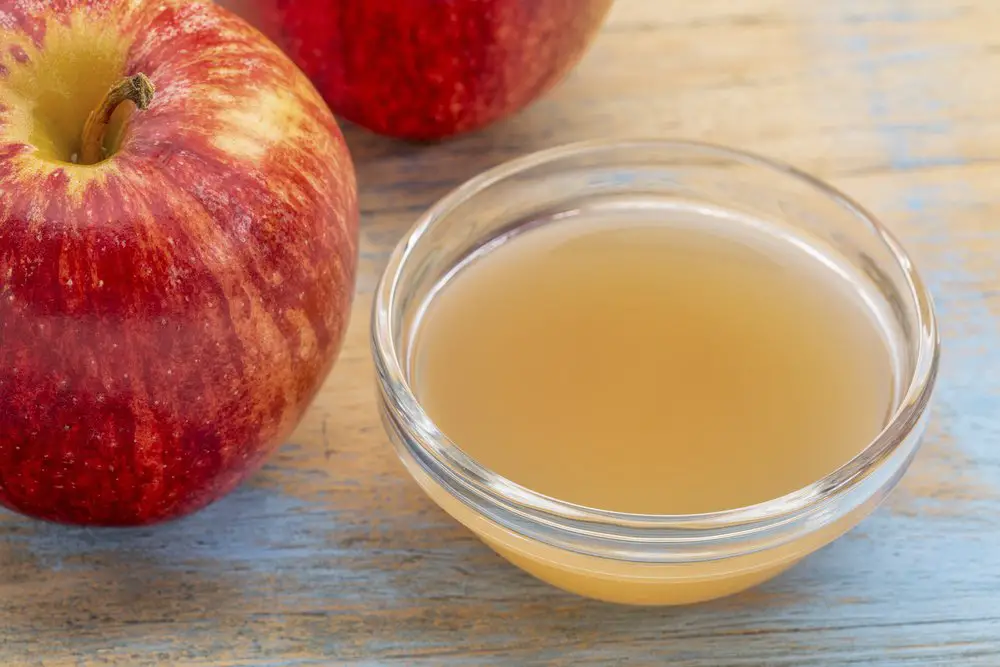



Hey Hair Loss Geeks!
I’ve been perusing around your site for about half an hour now – and just wanted to say how grateful I am for all the highly informative advice, knowledge and recommendations that is so generously given. This site has been incredibly helpful and I just had to leave you guys a very heartfelt THANK YOU!
With appreciation and gratitude from Phoenix, Arizona!
~Kelley
while i enjoyed the article, i take issue with what i feel are negative comments “give the oil a burnt smell that is not exactly pleasant” & “The smell of Jamaican black castor oil is worse, having a noticeably burnt smell to it”. i do not know what brand the author used, but the brand i use has a smokey scent, not “smell”. i rather enjoy the scent & have never felt it was “hard to get rid of”. i use regularly & do not see the point of rinsing or washing it out; but maybe that is a cultural/hair type difference, as i am of Jamaican heritage with thick curly hair.